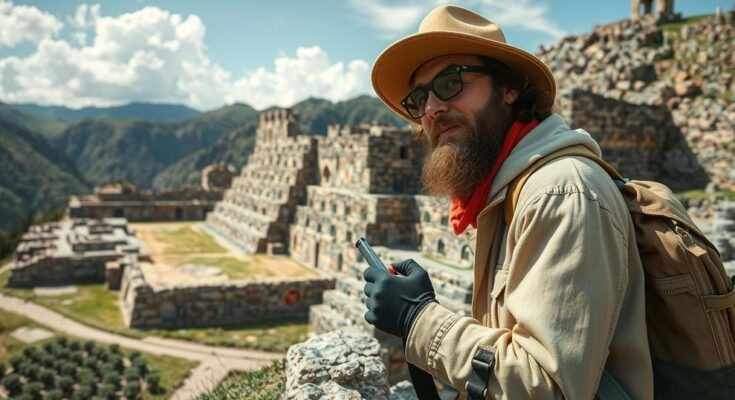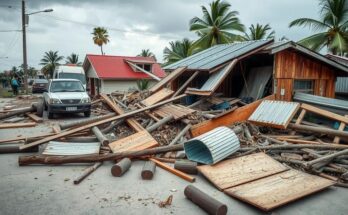Professor Sergio Chavez, an emeritus of Anthropology at Central Michigan University, has significantly impacted archaeology through community engagement and education in Bolivia. After relocating from Peru due to political turmoil, Chavez focused on training locals and establishing research projects that emphasized cultural sensitivity. His educational initiatives improved literacy rates and fostered community involvement, while his archaeological efforts have preserved ancient history and addressed environmental challenges in the region.
Professor Sergio Chavez, a distinguished emeritus of Anthropology at Central Michigan University, has dedicated his life to the field of archaeology, particularly in the Lake Titicaca Basin of Bolivia. His journey began in Peru, where he fostered a passion for historical preservation from childhood, influenced by his father’s archaeological work. Following political unrest in Peru, he and his wife relocated to Bolivia, where they established extensive research initiatives and community engagement practices over the subsequent decades.
Chavez’s commitment to archaeological research led him to create international collaborations, facilitating involvement from experts across various fields, such as paleozoology and geology, together with Bolivian governmental agencies. His major achievements include training local Aymara individuals in scientific excavation methods, promoting the establishment of local museums, and advocating for education programs, which significantly improved literacy rates within the community.
His educational initiatives included translating educational materials into the native Aymara language, fostering inclusivity and accessibility for over 500 individuals in pursuit of better academic opportunities. This program has empowered more than 20 locals to graduate from high school, illustrating Chavez’s profound influence on education in the region.
Chavez’s archaeological efforts have also focused on excavating ancient temples that are over 2,000 years old, aiming to enrich the local cultural heritage and stimulate tourism, albeit facing challenges in community engagement regarding land transformation for tourism purposes. Nevertheless, he successfully created a community museum housing significant artifacts from his excavations to preserve local history.
In tandem with addressing environmental issues in the region, particularly the contamination of Lake Titicaca, Chavez, along with his wife Stanislava, partnered with CMU’s chemistry and engineering departments to analyze water samples and propose solutions to mitigate pollution risks. Their commitment underscores the interconnectedness of cultural heritage preservation and environmental protection.
Overall, Professor Sergio Chavez’s rich and impactful career exemplifies the integration of archaeology, education, and community development. His legacy extends beyond mere scientific discovery, emphasizing the importance of educational initiatives and social responsibility in connecting ancient histories with contemporary lives.
Sergio Chavez’s work in archaeology stretches over decades, beginning in his childhood in Peru and evolving in Bolivia in response to significant socio-political challenges. As a professor emeritus at Central Michigan University, Chavez profoundly influenced both the academic realm and local communities through his dedication to research, education, and cultural sensitivity. His efforts in the Lake Titicaca region not only advanced archaeological understanding but also uplifted local populations through educational initiatives and community partnerships, particularly among the Aymara people. Chavez’s commitment to preserving both historical artifacts and the local environment is further demonstrated through his collaborative work addressing pollution in Lake Titicaca, illustrating how archaeology can intersect with ecological issues to benefit local communities.
The contributions of Professor Sergio Chavez to Andean archaeology encapsulate the vital role of integrating research with community involvement and educational initiatives. His journey reflects a lifelong dedication to not only unearthing ancient histories but also fostering a deeper connection between those histories and present-day realities. Through his innovative approaches to archaeological practice, education, and environmental stewardship, Chavez illustrates the profound impact one individual can have on preserving cultural heritage and empowering local communities for generations to come.
Original Source: www.cmich.edu




